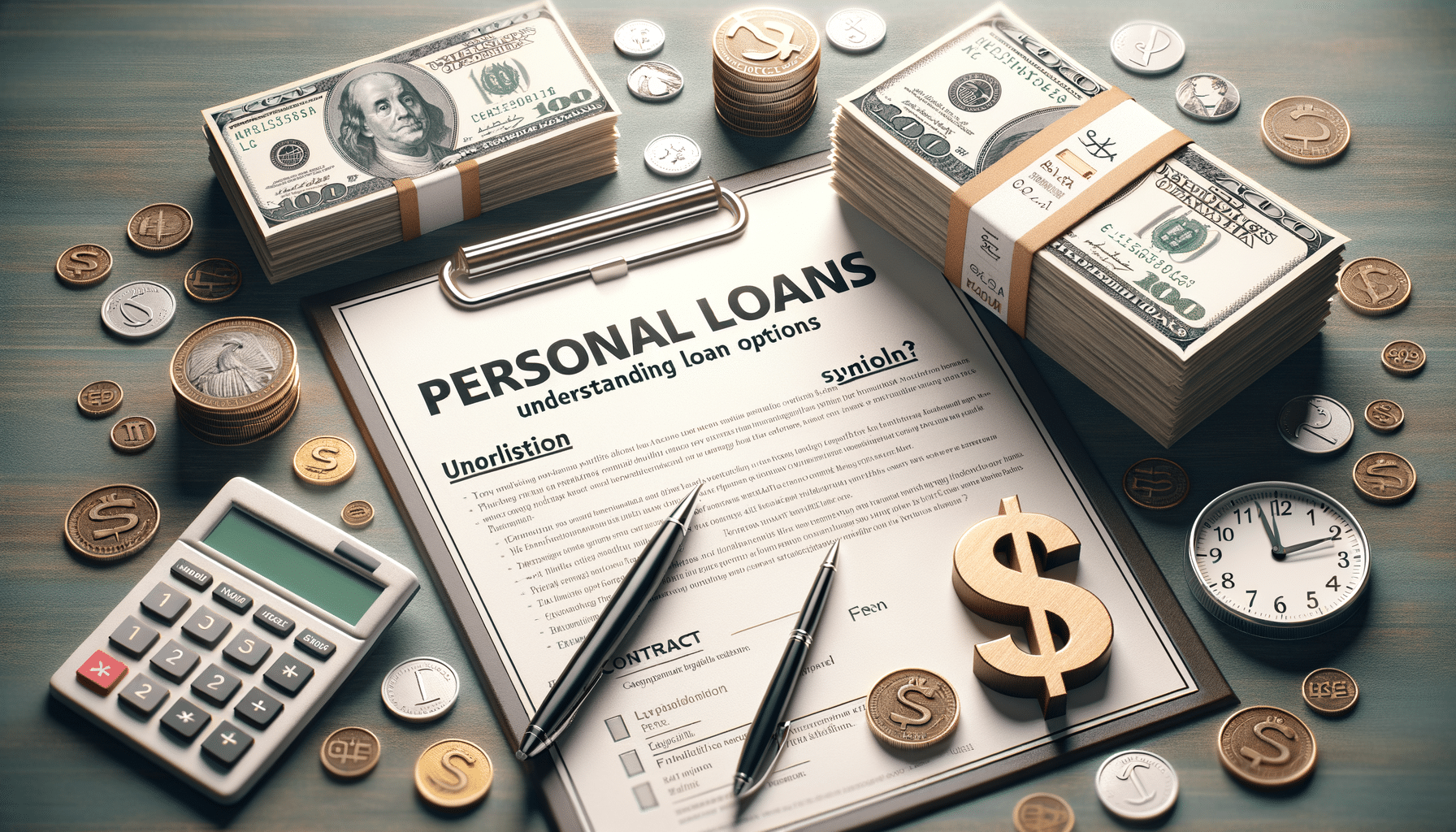Introduction to Personal Loans
Personal loans have become an essential financial tool for many individuals seeking to manage expenses, fund projects, or consolidate debt. These loans are typically unsecured, meaning they do not require collateral, and are available from banks, credit unions, and online lenders. Understanding the various aspects of personal loans can help borrowers make informed decisions that align with their financial goals.
The popularity of personal loans has surged in recent years, driven by their flexibility and accessibility. Borrowers can use personal loans for a variety of purposes, including home improvements, medical expenses, or even financing a wedding. This versatility makes them an attractive option for those needing quick access to funds without the constraints of more traditional loans.
Before diving into the specifics, it’s crucial to grasp the fundamental aspects of personal loans, such as interest rates, repayment terms, and fees. By understanding these elements, borrowers can better navigate the loan landscape and select the option that best suits their needs.
Key Features and Benefits of Personal Loans
Personal loans offer several key features that make them a viable option for many consumers. One of the primary advantages is the fixed interest rate, which provides predictable monthly payments throughout the loan term. This stability can be particularly beneficial for budgeting and financial planning.
Another notable benefit is the flexibility in loan amounts and terms. Borrowers can typically choose loan amounts ranging from a few thousand to tens of thousands of dollars, with repayment periods spanning from one to seven years. This range allows borrowers to tailor their loans to their specific financial needs and repayment capabilities.
Moreover, personal loans do not require collateral, reducing the risk for borrowers who may not have assets to pledge. This feature also expedites the approval process, enabling quicker access to funds. However, because these loans are unsecured, lenders may charge higher interest rates to mitigate their risk.
- Fixed interest rates for predictable payments
- Flexible loan amounts and terms
- No collateral required
- Quick approval process
These benefits make personal loans a compelling choice for those seeking financial assistance for various needs. However, it’s essential to weigh these advantages against potential drawbacks, such as higher interest rates compared to secured loans.
Factors to Consider Before Applying for a Personal Loan
Before applying for a personal loan, it’s important to evaluate several factors to ensure the loan aligns with your financial situation and goals. One critical consideration is your credit score, as it significantly influences the interest rate and loan terms offered by lenders. A higher credit score generally results in more favorable loan conditions.
Another essential factor is the total cost of the loan, including interest rates, fees, and any additional charges. Comparing offers from multiple lenders can help you identify the most cost-effective option. Be sure to review the annual percentage rate (APR), which provides a comprehensive view of the loan’s cost over its term.
Additionally, consider the loan’s impact on your monthly budget. Calculate the monthly payments and assess whether they fit comfortably within your financial plan. It’s crucial to avoid overextending yourself, as missed payments can lead to financial strain and damage your credit score.
- Evaluate your credit score
- Compare total loan costs, including APR
- Assess monthly payment affordability
- Consider the loan’s purpose and necessity
By carefully considering these factors, you can make a well-informed decision and select a personal loan that supports your financial objectives without compromising your financial health.
Comparing Personal Loans to Other Loan Types
When considering borrowing options, it’s helpful to compare personal loans to other types of loans, such as credit cards, home equity loans, and payday loans. Each option has distinct characteristics that may align differently with your financial needs and circumstances.
Credit cards offer revolving credit, which can be useful for ongoing expenses, but they often come with higher interest rates compared to personal loans. Additionally, carrying a high credit card balance can negatively impact your credit score, making personal loans a more attractive option for larger, one-time expenses.
Home equity loans, on the other hand, typically offer lower interest rates since they are secured by your home. However, this means your home is at risk if you fail to make payments. Personal loans eliminate this risk, though they may come with higher rates as a trade-off for the lack of collateral.
Payday loans are another alternative, but they are generally not recommended due to their extremely high interest rates and short repayment terms. Personal loans provide a more affordable and manageable solution for borrowers in need of funds.
- Credit cards: High interest, revolving credit
- Home equity loans: Lower rates, collateral required
- Payday loans: High interest, short-term
Understanding these differences can help you choose the right loan type for your specific needs, ensuring you select the option that offers the best balance of cost, risk, and convenience.
Conclusion: Making Informed Borrowing Decisions
Personal loans offer a versatile and accessible financial solution for individuals seeking to manage expenses or fund projects. By understanding the key features, benefits, and factors to consider, borrowers can make informed decisions that align with their financial goals and circumstances.
It’s crucial to evaluate your credit score, compare loan offers, and assess the impact on your monthly budget before committing to a personal loan. Additionally, comparing personal loans to other borrowing options can help you identify the most suitable choice for your needs.
Ultimately, making informed borrowing decisions requires careful consideration of your financial situation and objectives. By doing so, you can leverage personal loans effectively and responsibly, ensuring they serve as a valuable tool in achieving your financial goals.




Leave a Reply